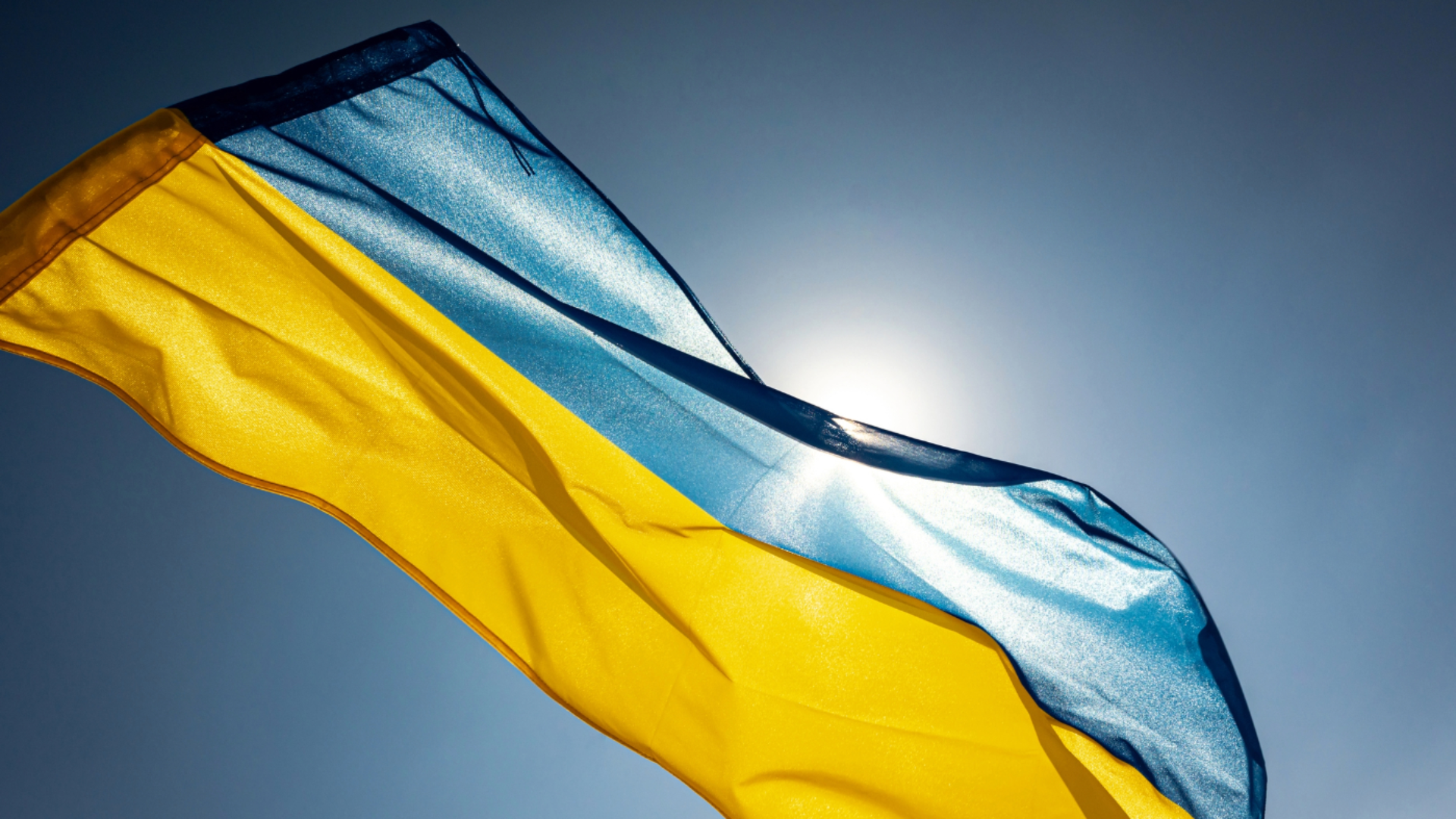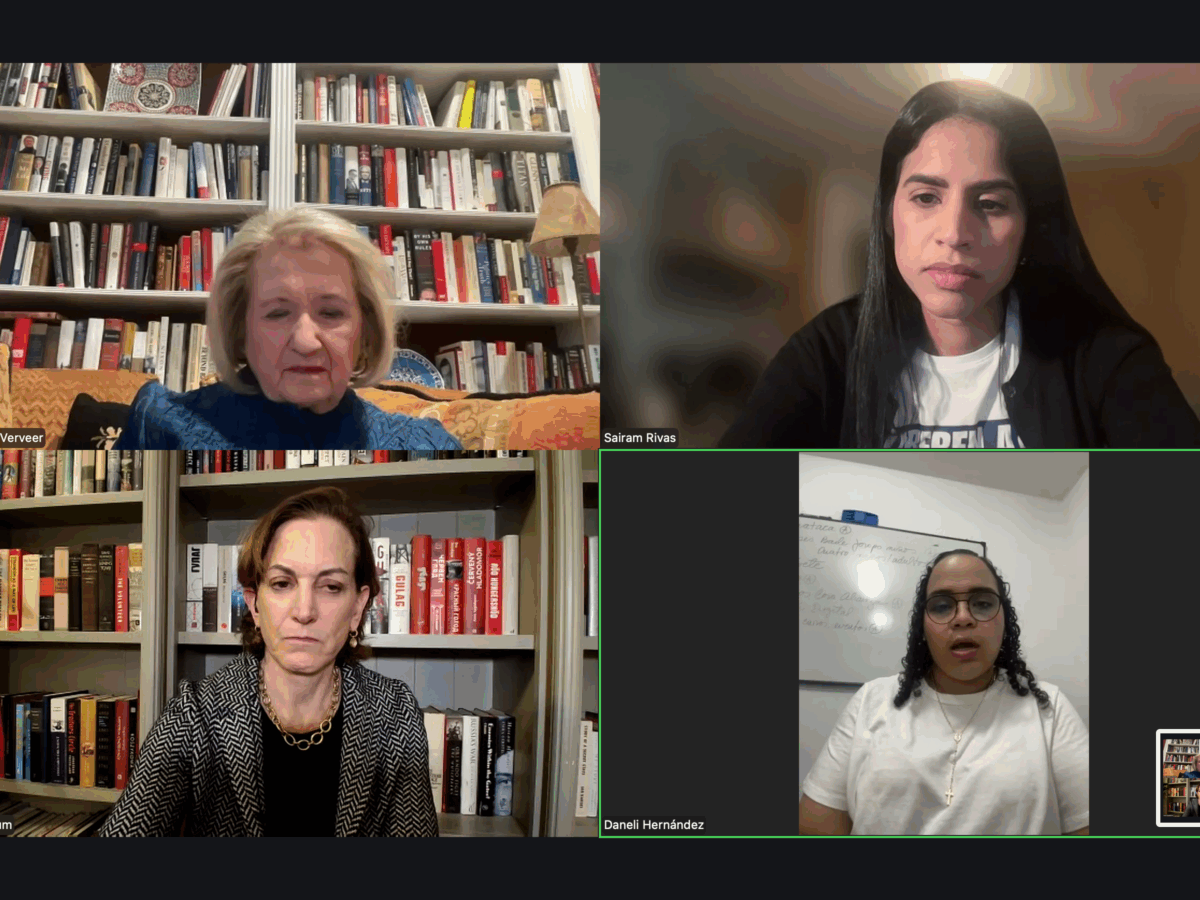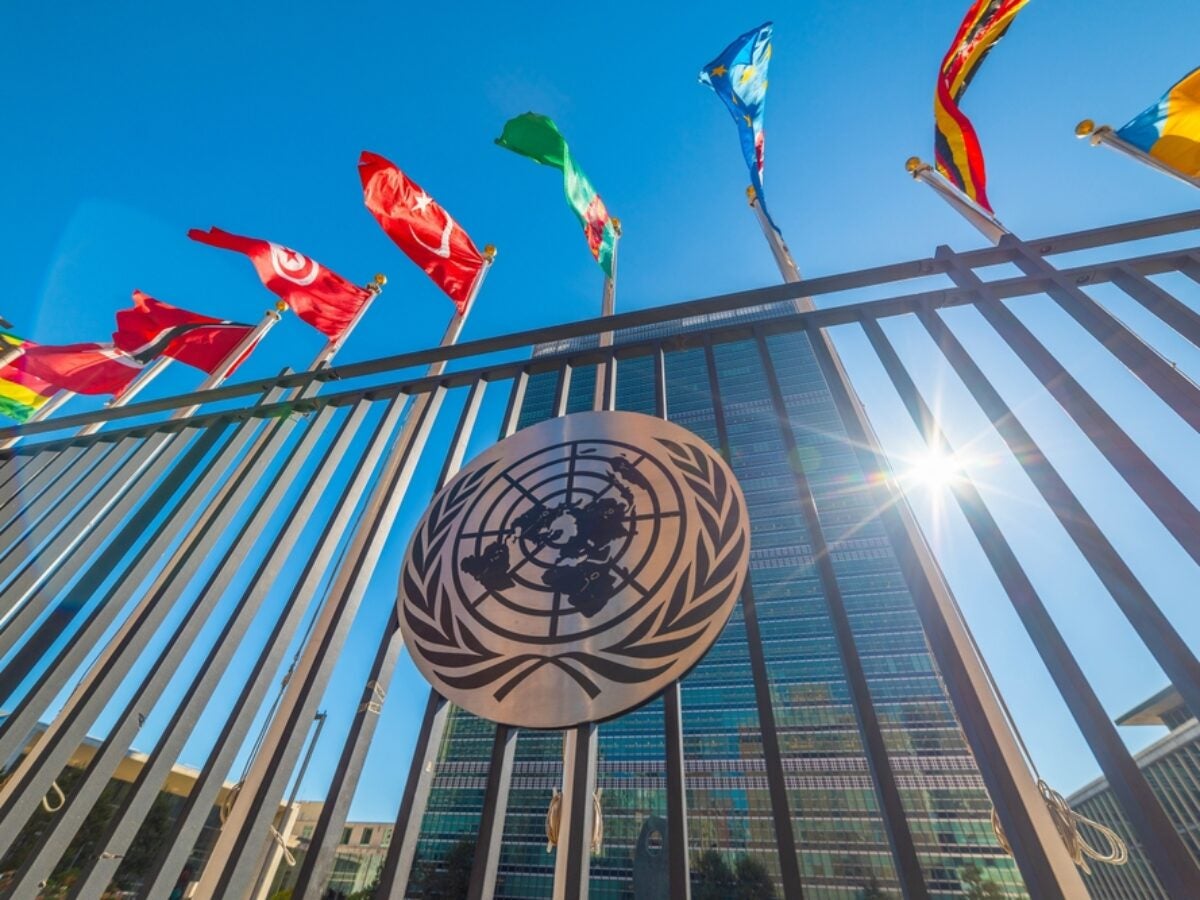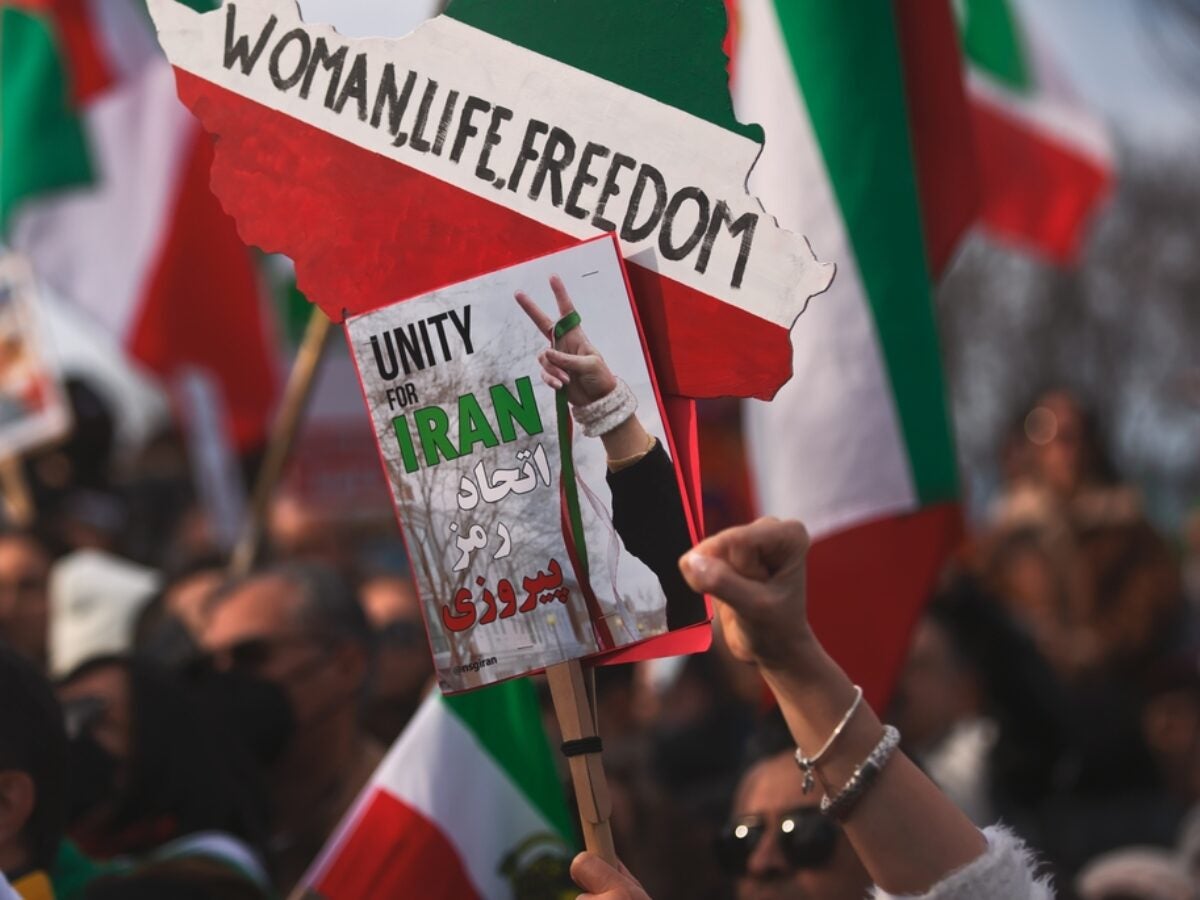Celebrating 33 Years of Ukraine’s Independence

Today, Ukraine’s independence, democracy, territorial integrity, and very identity are under assault by Russia. Despite Putin’s determination to erase Ukrainian culture and heritage, Ukraine continues to defend its identity and rich cultural legacy, which dates back to its earliest history. As Ukraine celebrated its Independence Day this weekend, we reflected on how Ukrainian women have been shaping the nation and their vision for the future of their country.
Throughout centuries of struggle, Ukrainian women have been crucial to protecting their nation’s spirit and advancing progress. From Lesia Ukrainka and her efforts to reawaken the national spirit through literature in the face of Tsarist Russia’s constant attempts to erase the Ukrainian language and identity, to Tetiana Marcus and Olena Teliha, leaders of underground movements against Nazi invaders, Ukrainian women have historically defied the constraints of their time. In modern times, sheroes of the Euromaidan movement, like lawyer Oleksandra Matviichuk and journalist Olena Halushka, have inspired a new generation of leaders to defend truth, justice, and the right to self-determination.
Today, Ukraine’s women are on the frontlines, bravely defending their country and its future. Women fighters like Olena Bilozerska, Tetyana Chubar, and Liubov Plaksiuk are among more than 40,000 women fighting on the front lines for Ukraine, standing shoulder to shoulder with men. Thousands more are serving in public service roles to keep the government functioning amidst the war. Many others are starting new businesses to bolster the wartime economy, while countless women take on various roles, all while bearing the primary responsibility of caring for their families.
The Georgetown Institute for Women, Peace and Security (GIWPS) and our executive director, Ambassador Melanne Verveer, have been fortunate to work with these courageous women of Ukraine in their fight for justice, independence, and a better future for themselves and the next generation. We continue to support their initiatives through our work, focusing on amplifying their voices and ensuring that women are not sidelined in important political processes and negotiations that will shape the future of Ukraine.
With this goal in mind, GIWPS has worked with a network of Ukrainian women leaders who continually inform our research, policy advocacy, and programming. In June, we participated in the Ukraine Recovery Conference in Berlin to advocate for prioritizing gender-inclusive recovery efforts and ensuring that women leaders are not sidelined. We also took part in launching the Alliance for Gender-Responsive and Inclusive Recovery, which we hope will play a significant role in mobilizing public and private sector resources for a just and inclusive recovery.
Just two months ago, we convened a group of Ukrainian women leaders from diverse backgrounds in Warsaw, Poland, to discuss Russia’s full-scale aggression against Ukraine, examine women’s roles in shaping the response to the war and post-war reconstruction, and develop recommendations for policymakers.
The women leaders identified common challenges, priorities, and calls to action for ensuring a gender-inclusive humanitarian response, advancing justice and accountability for Russian-perpetrated war crimes, engaging in peacebuilding measures, and leading the upcoming recovery phase. They had the opportunity to present their recommendations to the U.S. Ambassador to Poland Mark Brzezinski and engage in a candid discussion with the former President of Lithuania and a dedicated supporter of the Ukrainian cause, Dalia Grybauskaitė, on how to advance their advocacy efforts on the global stage and ensure their voices are heard.
Some of the top recommendations from Ukrainian women leaders include:
Inclusive Humanitarian Response & Localization of Aid
- The national government and INGOs must collaborate with local NGOs and CSOs on program design and implementation, informed by locally-led needs assessments and intersectional gender analysis to tailor programs.
- The International Aid Agencies must prioritize the localization of aid by allocating a percentage of funding directly to local CSOs for locally relevant program delivery and rapid response. In addition, reporting requirements must be minimized to allow for mid-year or end-of-grant cycle reporting, facilitating rapid response to shifting dynamics and allowing flexibility of funding
- Develop longer-term sustainable programs to limit aid dependency, recognizing the prolonged nature of the conflict and prioritizing sustainable support over direct aid. Focus on economic empowerment through training programs aligned with current job market demands, specifically targeting women. Implement work-for-aid initiatives instead of direct assistance lines to aid in eventual relief and recovery.
Justice and Accountability for Survivors of Conflict-Related Sexual Violence (CRSV)
- The national governments and the international community must support the Ukrainian government to strengthen national and subnational justice systems, by collaborating with local law enforcement to assess needs and strengthen the national and local justice systems. This involves adapting criminal codes and procedures for conflict situations, ensuring adherence to international standards for documenting and prosecuting CRSV, and ratifying the Rome Statute.
- The international community must collaborate with the Ukrainian government and local CSOs to prevent and address harm to survivors by improving processes for documenting and verifying survivor status. Additionally, the Ukrainian government must develop survivor-centered protocols within the legal system to address CRSV. This involves providing training for police, judges, and prosecutors, as well as implementing localized evidence-collection efforts.
- The G7 countries must advocate for a percentage of frozen Russian assets and donor packages to be dedicated to funding non-material damages and reparations for survivors of CRSV.
Peace and Recovery
- International donors must attach conditionalities to their funding that prioritize the reform of the rule of law and law enforcement, and ensure that transparency and human rights protection systems are integral components of the recovery process. Dedicate a portion of funding to empower civil society monitoring groups, local investigative journalists, and human rights organizations to oversee recovery processes effectively.
- Recovery efforts must prioritize the development of social infrastructure benefiting women and girls, such as kindergartens and childcare facilities, to facilitate women’s reintegration into the workforce. Additionally, fund public awareness campaigns for gender-sensitive recovery, utilizing 1325 groups to advocate for gender considerations in state construction norms and recovery plans.
- Develop vocational education and skill training programs for women in sectors driving economic growth, including agriculture, technology, cybersecurity, energy, and defense manufacturing. Implement special economic programs tailored for women survivors of war crimes, IDPs, and other marginalized groups.
Our institute and entire team wish Ukraine a happy Independence Day.
Explore More

Acclaimed Journalist Anne Applebaum and Women Human Rights Defenders Discuss Implications of…
The people of Venezuela are uncertain about their political, social, and economic…

GIWPS Analysis: The US is Pulling Back from Multilateralism
This week, the White House issued a presidential memorandum announcing that the…

GIWPS Analysis: Iran’s Escalating Political Repression and the Arrest of Narges Mohammadi
Iranian authorities detained 2023 Nobel Peace Prize awardee Narges Mohammadi during a…